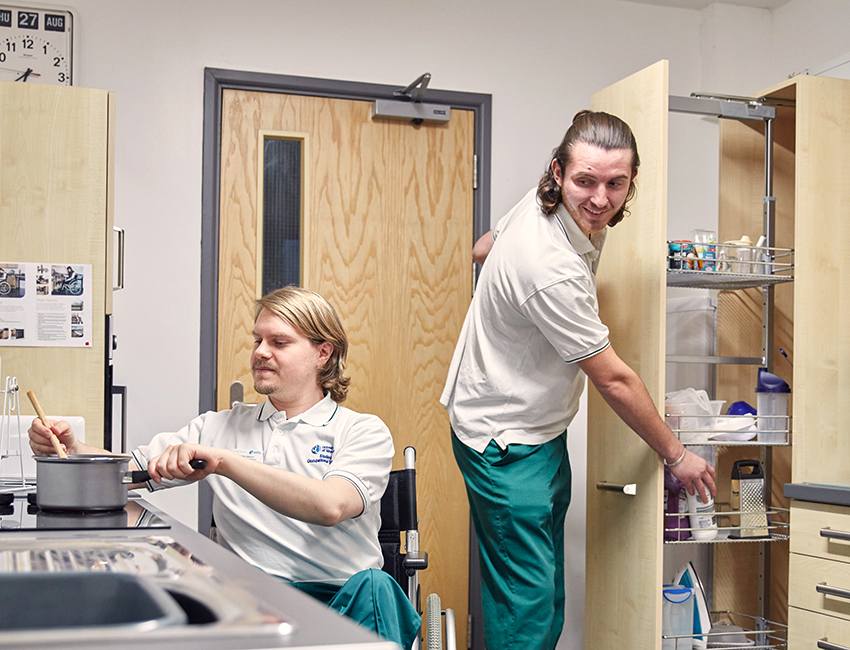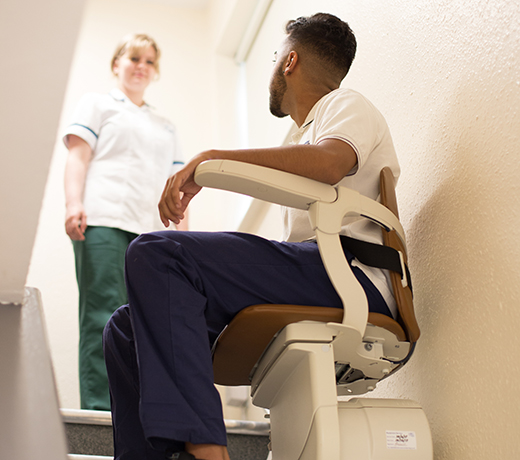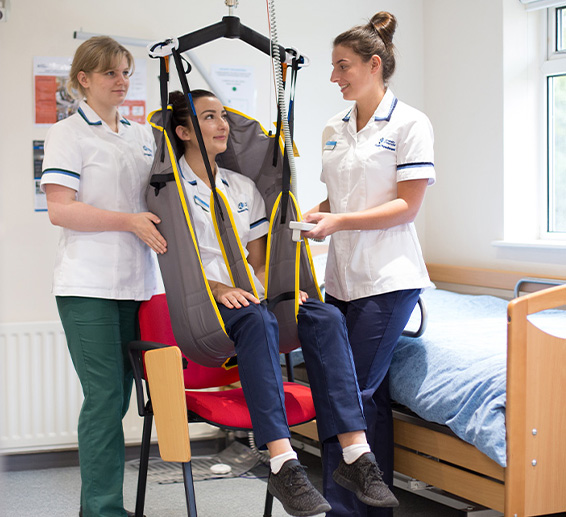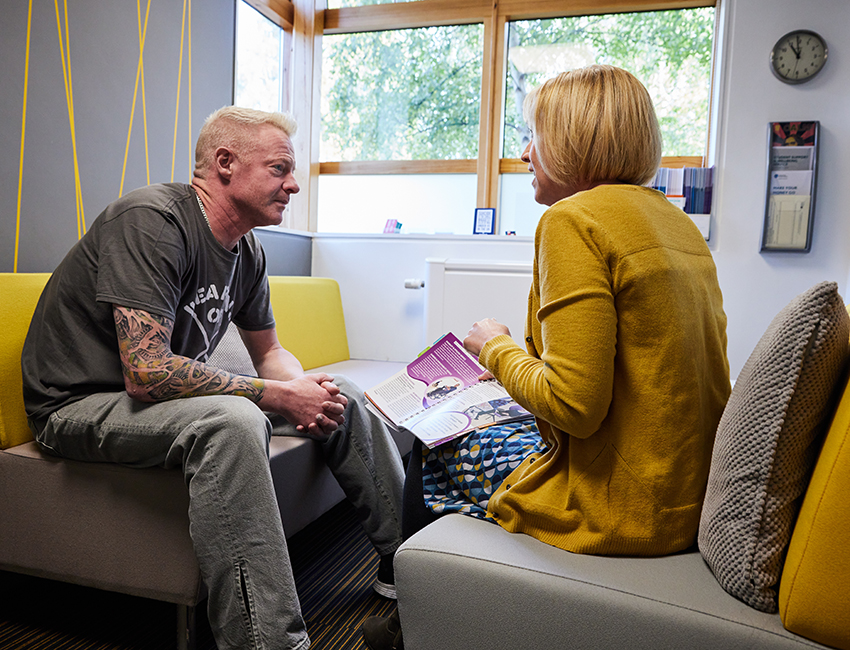You’ll need to apply for this course through your employer, with their support. Individuals cannot apply directly to the University.
This means you can register with the HCPC to practice under the protected title of Occupational Therapist.
Overview
Occupational therapists play a key role in helping people regain, maintain, or improve their participation in life. Often, they work with people whose ability to take part in life has been impacted by injury, disability or illness. Occupational therapists also work with individuals and groups whose ability and freedom to take part in life is restricted by other circumstances. This includes those who are detained in prison or in immigration centres, as well as people who are homeless or are refugees.
At Worcester, we value compassionate, effective, and ethical care. Study occupational therapy and become equipped with the skills and experience you will need to support others to live the life of their choice. We have a strong focus on leadership in our programme, helping you to develop both as a therapist and as a dynamic practitioner throughout your career.
You’ll be taught alongside other health and social care students, including physiotherapists, dietitians, social workers, mental health nurses, physicians associates, and doctors. This prepares you to collaborate with and work alongside other health and social care professionals, just as you will once you graduate.
- The Occupational Therapy Degree Apprenticeship is delivered with support from your employing organisation allowing you to immediately embed your learning into practice in the workplace.
How apprentices study
Teaching and learning on an apprenticeship will be a collaborative process between you, your employer and the university. This will include attending university for tutorials, work-based learning, when required to complete the apprenticeship an alternative placement and mentoring by a qualified/experienced colleague.
In a typical week apprentices have around 6 - 9 contact hours of university teaching across 3 semesters. However, the precise contact hours will depend on the year of study and the module you are studying. An example of teaching contact time will be structured around:
- 3 hours of interactive workshops/skills simulations or student seminars either face to face or online
- 3 hours of (large group) lectures either face to face or online
- 3 hours of asynchronous online teaching and learning
Apprenticeship students will have the opportunity to study alongside other students completing a BA (Hons) or BSc (Hons) Degrees.
As an apprentice, you’ll spend part of your working time developing the knowledge, skills and behaviours needed for your qualification. This is known as ‘off-the-job’ learning, and your employer will support you to complete it. You and your employer will agree how this learning is structured to best support your development and progress.
What is occupational therapy?
Course content
On this accredited course you’ll study theories backed up by substantial evidence and will then apply this learning in professional practice.
All modules are mandatory to ensure you’re eligible to register as an occupational therapist with the HCPC.
We regularly review our courses to reflect the latest research and developments in the subject area, as well as feedback from students, employers and the wider sector. As a result, modules may change to ensure the course remains current and relevant.
Careers and employability
Most graduate apprentices are offered roles within their work place as registered occupational therapists.
As your career develops you can work in a huge variety of settings, including:
- NHS and private hospitals
- Schools
- Adult social care settings
- Mental health, learning disability and postural care services
- Outdoor therapy centres
- Specialist equipment suppliers and home adaptation services
- In people’s homes and the community
As occupational therapists, we do not group people by health condition or speciality but address their needs as individuals. Most of our graduates secure their preferred first choice of employment area, and whilst many choose to work within the NHS or social care, others have taken new graduate roles within charities and private health settings.
Our course is recognised by the World Federation of Occupational Therapists, meaning you can also choose to seek employment as an occupational therapist abroad.
Course highlights
Teaching and assessment
Teaching is a mix of interactive seminars, lectures, one-to-one tutorials and practical skills sessions. Your assessments will help prepare you for a career as an occupational therapist and include writing reflective essays, engaging in group debates, creating a health promotion plan and designing a training package.
Teaching and assessment contents
You are taught through a combination of interactive workshops, lectures, seminars and group activities. Interactive workshops take a variety of formats and are intended to enable the application of learning through discussion and small group activities. Seminars enable the discussion and development of understanding of topics covered in lectures and group activities are focused on developing occupational therapy specific skills.
Apprentices will have opportunity to engage in inter-professional learning through the course along with health and social care professionals within the school of Health and Wellbeing.
There will be opportunities to engage with IMPACT, the university organisation of service users and their families/carers to support teaching and assessments.
Apprentices will complete a minimum of 1000 hours of practice learning, working alongside experienced clinicians in a range of areas, location and specialities. This will enable apprentices to apply their knowledge, skills and behaviours in a variety of settings.
Learning is supported by a range of excellent learning facilities including the Library Services at The Hive, virtual learning environments and extensive electronic learning resources.
Regular meetings will be scheduled between the apprentice, the university and then employer to monitor and support learning and development with goal setting.
Entry requirements
We accept a range of qualifications, including Access to HE Diplomas. We also take into account any work or life experiences you have, alongside any qualifications you hold.
You’ll need to apply for this course through your employer, with their support. Individuals cannot apply directly to the University.
Any questions?
If you have any questions about entry requirements, please email apprenticeships@worc.ac.uk
Fees
Fees contents
Fees for this apprenticeship will be paid by the employer, through apprenticeship funding via the Growth and Skills Levy.
How to apply
How to apply contents
All applications are through your employer, and you must have the support of your employer. Please discuss the possibility of completing the apprenticeship with your line manager and/or HR department. Your employer can then contact the University to discuss applying to the programme.
Individuals cannot apply directly to the University.
Contact
If you have any questions, please get in touch. We're here to help you every step of the way.

Apprenticeships team
apprenticeships@worc.ac.ukMore to explore
Open Days
Visiting us is the best way to get a feel for student life at the University of Worcester.

The City of Worcester
Worcester is a welcoming university city with great transport links and plenty of student parking.

Accommodation
Benefit from our accommodation guarantee. We have rooms on campus to suit every budget including en-suite options.







